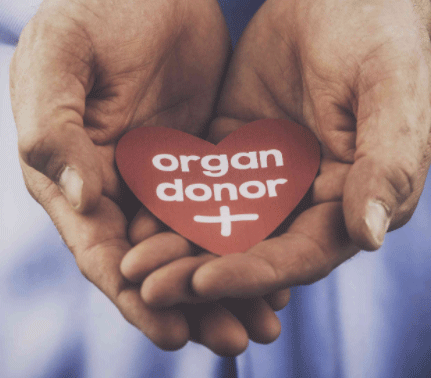Bhubaneswar: An estimated five lakh people die in India while waiting for an organ transplantation every year. Against a requirement of 1.5 lakh kidney transplantations, only 5,000 are performed in the country annually.
Around two lakh people die of liver diseases because they never got a donor. These grim statistics are real and stand out against the World Health Organisation (WHO)’s report which says India’s organ donation rate was a meagre 0.01 per cent, eminent gastroenterologist Prof. (Dr.) Manoj Kumar Sahu said on Saturday.
Prof. Sahu, who was speaking at a program organised to mark the National Organ Donation Day at the Institute of Medical Sciences and SUM Hospital here, said 17 people in India died every day because they couldn’t get a donor.
Against a huge requirement, only around 39,000 organ transplantation were conducted in India during 2020, he said.
The program was also addressed by Prof. (Dr.) Gangadhar Sahu, Dean of IMS and SUM Hospital, Prof. (Dr.) Pusparaj Samantasinhar, Medical Superintendent, Dr. Ajay Kumar Jena, Additional Dean, Dr. Satyaprakash Raychoudhury, Head of GI Surgery in the hospital, Neuro Intensivist Dr. Iswar Chandra Behera and Nursing Superintendent Minati Mishra.
Most speakers were of the view that lack of awareness about organ donation was the biggest hurdle which stood in the way of ailing patients getting organs.
Stating that a person of any age could donate an organ, Prof. Sahu, who heads the department of Gastroenterology in the hospital, said a newborn baby who died within 100 minutes of birth could donate both kidneys while the cornea of a 107-year-old woman could be harvested for use.
“There is no age bar for organ donation,” he added.
Prof. Sahu said the scope of organ donation in the country was immense and people needed to be sensitized about this issue.
“During last month, organs had been donated by family members of ten brain dead person in IMS and SUM Hospital alone,” he informed.
Dr. Sahu, the Dean, said people were generally reluctant to donate organ even after a person had died.
“Whenever you ask a patient if he had any family member or friend who could donate blood for him, the mostly the common response is if the blood could be made available from some other source,” he said pointing to the general mindset of people.
“People should think judiciously and take decisions in this regard,” Dr. Sahu said.
Prof. Samantasinhar said the recent government order that post-mortems could also be done at night would go a long way in increased harvest of organs.
“It is a landmark order and will help greatly,” he said.


